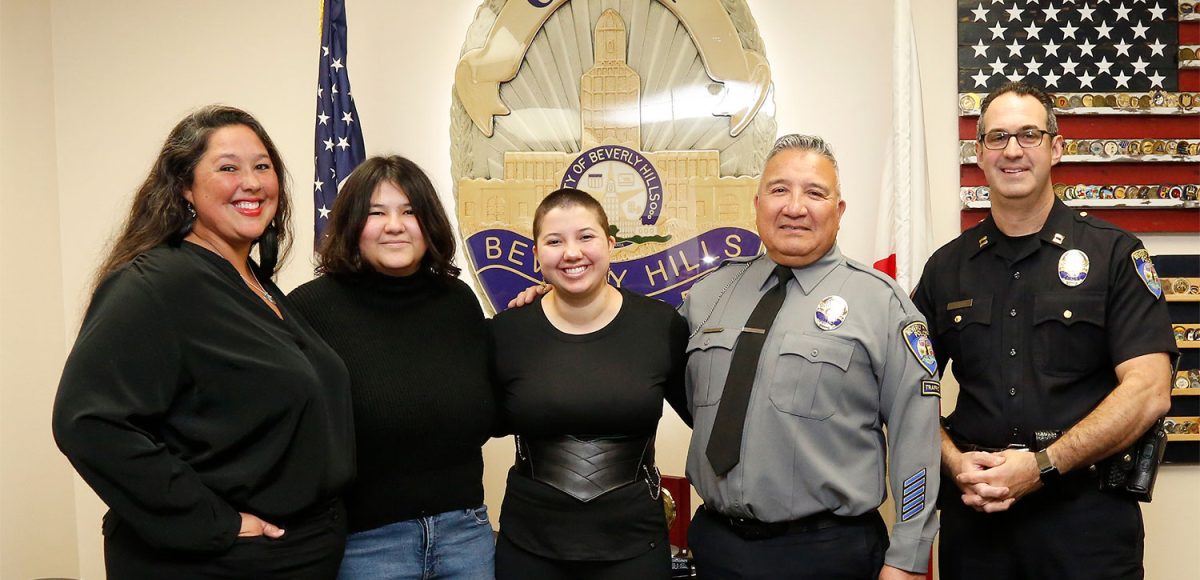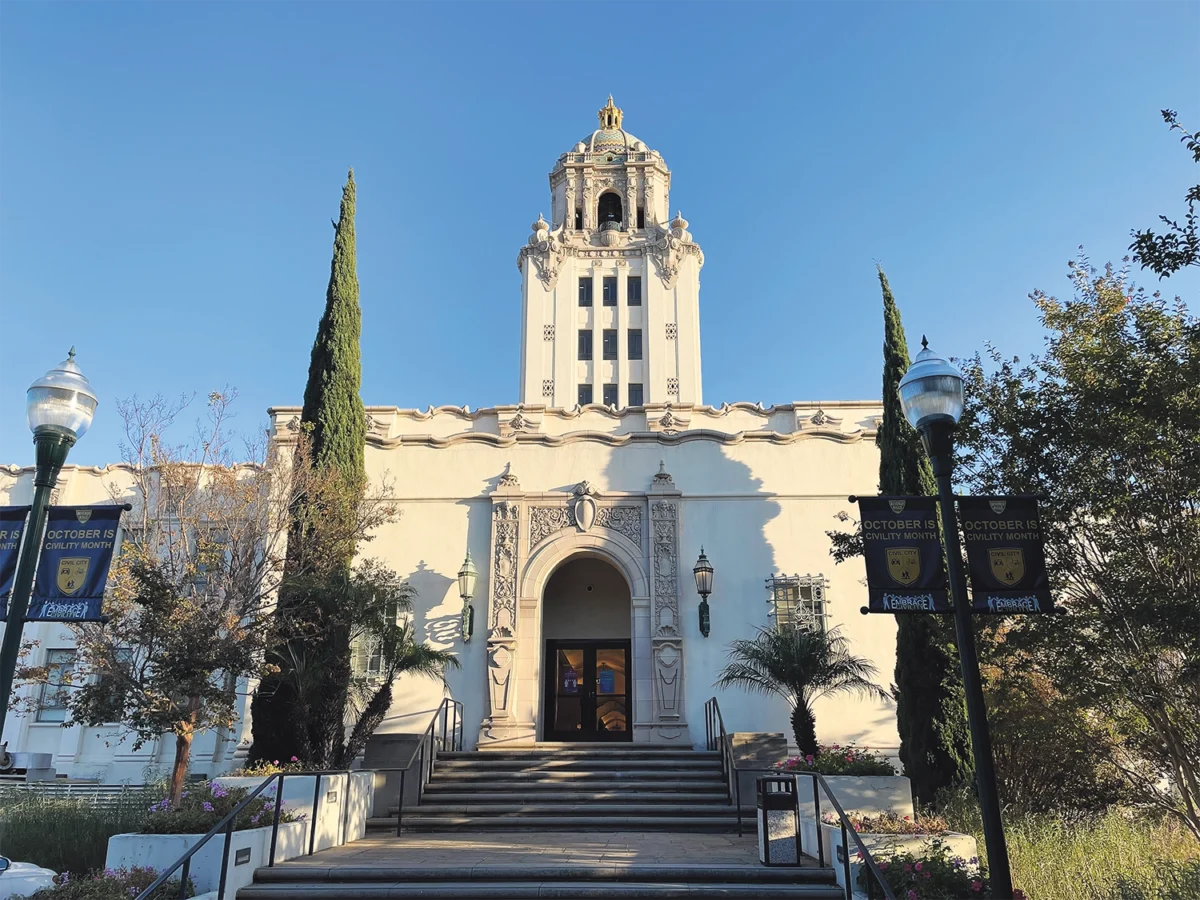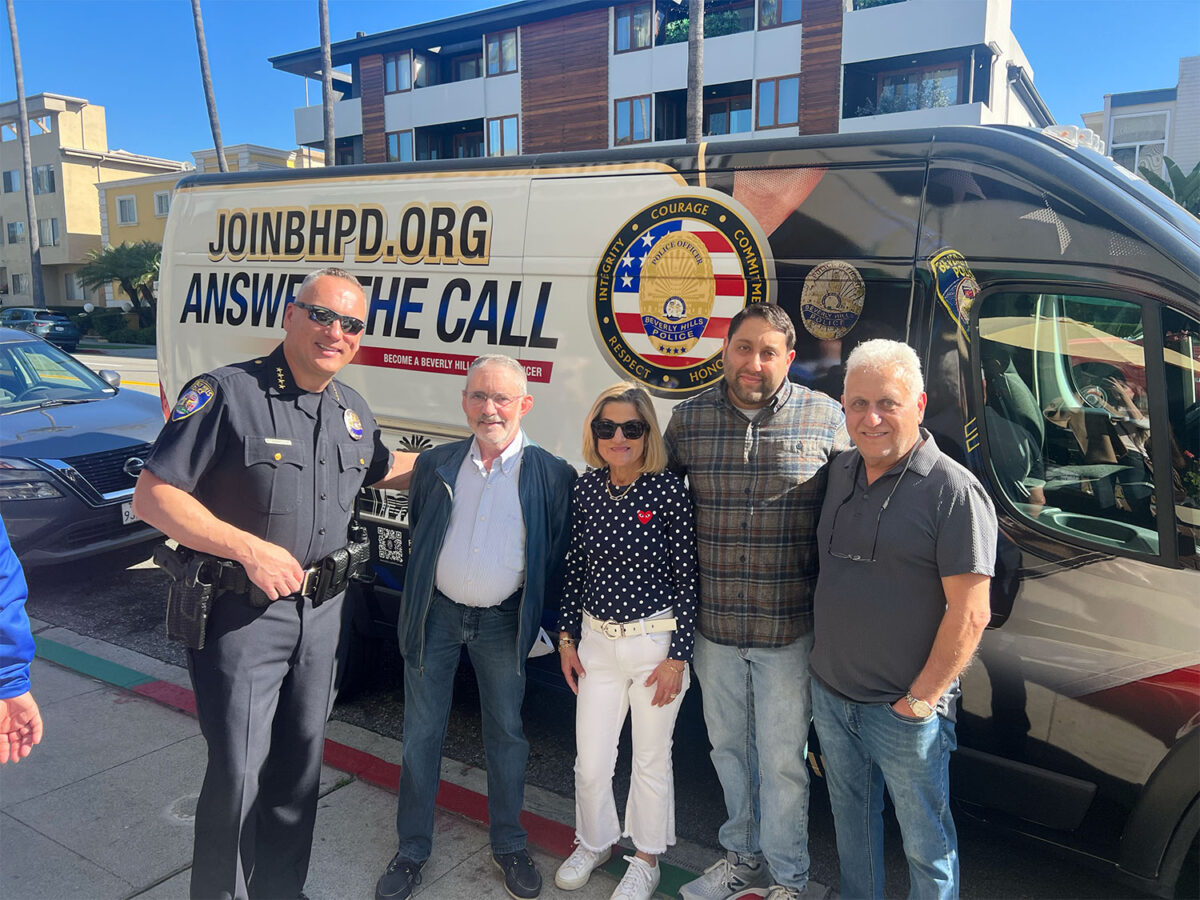Chasia Elzina Jeffries is a second-year Ph.D. student at UC Irvine. She’s juggling higher education pursuits, which include heavy coursework, teaching assistant duties and a master’s thesis, with an on-campus job.
This year, she received a scholarship for on-campus housing costs that has helped relieve her financial burden while freeing her to spend more time on her studies.
“This scholarship was essential to my staying on track with my studies without becoming overwhelmed,” Jeffries, who is completing a graduate degree in feminist studies and critical theory, said. “I am very grateful to the BHPF for their support of my academic endeavors and career goals.”
Jeffries–the daughter of Beverly Hills Police Department (BHPD) traffic control officer Rodney Jeffries–is among the approximately 20 people to receive recent scholarships, ranging from $1,000-$5,000, from the Beverly Hills Police Foundation (BHPF).
In its most recent cycle, the BHPF awarded more than $56,000 in scholarships to BHPD employees and their children. In one family alone, three young people received scholarships.
Additional recipients included BHPD’s Giovanni Trejo. The police captain has long wanted to pursue a degree that would supplement his policing skills, and he’s using his scholarship toward a Doctor of Education in organizational leadership at the University of La Verne.
“The scholarships are really generous,” Trejo told the Courier. “It’s such great financial support.”
Anita May Rosenstein, a board member at the Beverly Hills Police Foundation, told the Courier the scholarships make a significant difference in the lives of police department employees and their family members.
“It’s amazing,” she said in a phone interview. “We’ve affected a lot of young people’s lives by allowing them to go to college and pay for their tuition.”
Created in 1987 during the tenure of former police chief Marvin Iannone, the Beverly Hills Police Foundation is a nonprofit charity that provides financial grants to members of the Beverly Hills police family, including sworn officers and civilian professionals, as well as their spouses, widows and children.
The foundation’s primary purpose is to underwrite expenses of higher education or vocational training for employees and the children of employees. No repayment of any kind if required.
When the fund was initially launched, it didn’t offer scholarships, but when the foundation’s leaders, including longtime Beverly Hills resident Mike Schwab, formed the organization with bylaws, they broadened its scope. The foundation started awarding scholarships about five years ago. Each year, the foundation receives about 25 applicants. To date, the foundation has awarded more than $250,000. Over the years, the pool of available funds has grown because of strategic investments.
The foundation is required to donate a certain percentage of its funds each year. Low overhead allows a greater proportion of money to be dedicated to scholarships and grants, according to the foundation website.
Schwab, a foundation board member and BHPD reserve officer, oversees the project. He recruited donors to the project, and each year arranges for the chief of police, also the president of the board, to notify whoever is awarded a scholarship.
“It’s a fabulous feeling to let someone know they were awarded a scholarship,” Schwab said.
Each year, Schwab and the other board members spend an estimated 75 hours going over scholarship requests, discussing who is eligible and most deserving. Those involved include Rosenstein, a longtime foundation board member and Beverly Hills resident. She has a long track record of philanthropic involvement in the community, and her son, Brian, who sits on the foundation’s scholarship committee, has served as a reserve in the city’s police department.
“We’ve always been interested in helping the police,” Rosenstein said.
In a phone interview, BHPD Captain and Foundation Secretary Max Subin said the program owes its success to the dedication of the board members.
“They’re members of the community,” Subin said. “They care about the welfare of the officers, and they care about the scholarships.”
While providing scholarships is a central part of the foundation’s work, it also provides emergency grants. Last year, along with providing more than $50,000 in scholarships, the foundation awarded more than $21,000 in emergency grants.
Deann Lewis, a communications dispatcher at BHPD, received a grant from the foundation to offset the expenses of her daughter’s medical and therapy bills. Her 7-year-old daughter, Natalie, was diagnosed at four months old with Wolff-Parkinson-White syndrome, a rare congenital heart defect that makes the heartbeat faster than normal. While a typical heart rate beats at 60 to 100 beats per minute, Natalie’s heart rate was 300 beats per minute. She underwent an ablation, an outpatient surgery that slows down the heart’s rate. However, during the procedure something went wrong, and her heart was consequently perforated. She suffered brain damage as a result and is currently dealing with the ramifications.
The financial assistance from the foundation, Lewis said, has allowed the family to focus on Natalie’s care without worrying about expenses.
“It’s been a huge blessing that the finances are not what’s holding us back from helping our daughter,” Lewis said. “The foundation makes you feel like part of a family and feel support that most businesses and organizations aren’t able to offer.”
Subin, a liaison between the board and grant recipients, worked hard ensuring Natalie’s family was given the support they needed.
“I heard their story, it was heartbreaking, and I knew the board would be receptive to a grant request,” Subin said. “The foundation was able to support her for medical expenses.”
In an ideal world, the foundation wouldn’t have to dedicate funds to emergency grants and could instead focus exclusively on scholarships, Subin said.
BHPD Police Chief Mark Stainbrook told the Courier that he relishes sharing the news with an employee that they or a family member have received a scholarship. (The recipients are determined in December of each year, timed for the holidays.)
“One of the best things I get to do is help them in their education,” he said. “Literally, when they come into my office their eyes light up. It takes the burden off them financially. Some of these folks are now pursuing doctorates and master’s degrees.”







